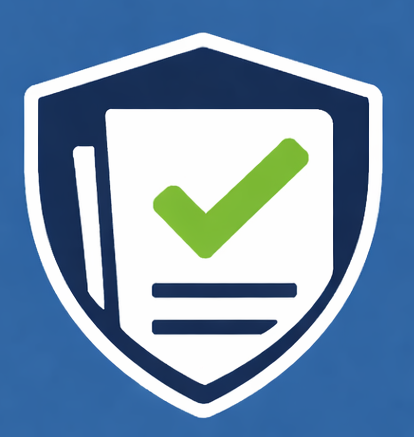CFA Certification Guide
CFA Certification Guide
The Chartered Financial Analyst (CFA®) credential, offered by the CFA Institute, is one of the most respected certifications in the investment and financial services industry. It validates deep expertise in investment management, portfolio strategy, financial analysis, and ethics — making it the gold standard for professionals aiming to advance in finance.
Why CFA Certification Is Important
- Recognized worldwide across banking, asset management, and investment firms.
- Required or preferred by many top employers such as Goldman Sachs, JP Morgan, and BlackRock.
- Certified CFAs earn an average salary of $120K–$150K in the U.S. (senior roles go higher).
- Builds credibility with clients, regulators, and employers as an investment expert.
Requirements and Eligibility
- Education:
- A bachelor’s degree or be in the final year of a bachelor’s program.
- Alternatively, 4,000 hours of professional work experience or a combination of work and education.
- Work Experience (for charter award):
- 4,000 hours of professional experience in investment decision-making, completed in at least 3 years.
- Membership:
- Must join the CFA Institute and a local society to earn the charter.
Exam Details
- Exam Fees: $940–$1,250 per level (depending on registration window).
- Total Cost: $3,000–$4,500 across all 3 levels.
- Format: Computer-based exams, multiple-choice, item sets, and essay-style questions.
- Levels:
- Level I – Investment tools and foundations (ethics, quantitative methods, economics, accounting, finance basics).
- Level II – Asset valuation and financial analysis (equity, fixed income, derivatives, alternatives).
- Level III – Portfolio management and wealth planning (integrated applications, case studies, client management).
- Passing Score: Not published, but typically around 65–70%.
- Pass Rates (2024 averages):
- Level I: ~39%
- Level II: ~44%
- Level III: ~48%
Salary and Career Outlook
- Average salary: $120K–$150K in the U.S.
- Roles: Portfolio Manager, Equity Research Analyst, Investment Banker, Risk Manager, Wealth Manager, CFO.
- Global demand: More than 190,000 CFA charterholders worldwide across 160+ countries.
Step-by-Step Roadmap to CFA
- Confirm Eligibility – Education or work experience requirement.
- Register with CFA Institute – Choose exam level and testing window.
- Create a Study Plan – 300+ hours per exam level recommended.
- Master the Curriculum – Use CFA Institute materials and prep providers.
- Take Mock Exams – Practice under timed conditions.
- Sit for Level I – Focus on foundations and ethics.
- Progress to Levels II & III – Each builds on prior knowledge.
- Gain Required Work Experience – Apply your knowledge in finance roles.
- Apply for Charter – Join CFA Institute, submit work experience, and earn the charter.
Exam Pass Tips and Mistakes to Avoid
Tips for Success
- Commit to 300+ hours of study per level.
- Ethics section is heavily weighted — never neglect it.
- Practice with mock exams and time yourself.
- Use CFA Institute’s Learning Ecosystem (official materials).
Common Mistakes
- Procrastinating — CFA requires long-term planning.
- Focusing only on quantitative methods while ignoring ethics.
- Attempting exams without enough real practice.
Best Study Resources
- CFA Institute Learning Ecosystem (official).
- Kaplan Schweser CFA prep materials.
- Wiley Efficient Learning CFA prep.
- AnalystPrep or Fitch Learning for practice questions.
- CFA Reddit and AnalystForum communities for peer support.
Renewal and Continuing Education Requirements
- No recertification exam is required.
- Must maintain CFA Institute membership (annual dues ~$299).
- Encouraged to complete Continuing Education (CE) credits — 20 hours annually recommended.
CFA vs Other Certifications
| Certification | Focus | Difficulty | Cost | Avg Salary | Best For |
|---|---|---|---|---|---|
| CFA | Investment analysis, portfolio management | Very High | $3K–$4.5K | $130K | Analysts, PMs, investment pros |
| CPA | Auditing, accounting, tax (U.S.) | Very High | $1K+ | $110K | Accountants, auditors, CFOs |
| MBA | General business & management | Very High | $50K+ | $120K+ | Executives, managers |
| FRM | Financial risk management | High | $1.5K | $115K | Risk managers, compliance |
👉 CFA is best for investment and asset management, CPA for accounting/auditing, MBA for leadership, and FRM for risk.
Practice Questions (Mini Quiz)
- Which CFA exam level focuses on portfolio management and wealth planning?
- A) Level I
- B) Level II
- C) Level III ✅
- D) All Levels
- How many hours of study are recommended per CFA exam level?
- A) 150
- B) 200
- C) 300 ✅
- D) 400
- Which section of the CFA exam is known to carry significant weight and is often a tiebreaker?
- A) Quantitative Methods
- B) Ethics ✅
- C) Economics
- D) Derivatives
Why the CFA Certification Is The Premier Credential
The CFA certification is the premier credential for investment professionals. It demonstrates unmatched expertise in financial analysis, ethics, and portfolio management — and is respected globally across banking, consulting, and asset management.
If your goal is to become a portfolio manager, investment banker, equity analyst, or financial leader, the CFA charter will elevate your credibility and earning potential. With dedication, discipline, and mastery of the curriculum, the CFA can transform your career in finance.






